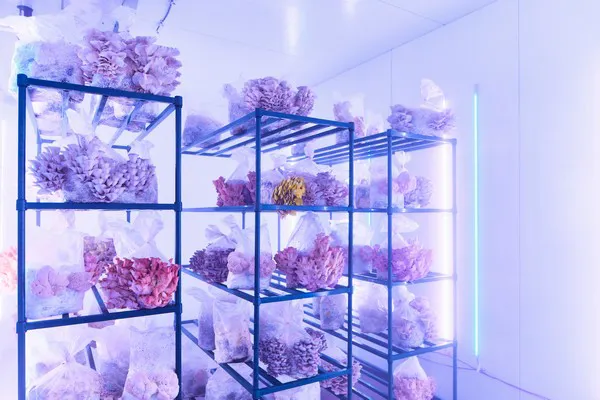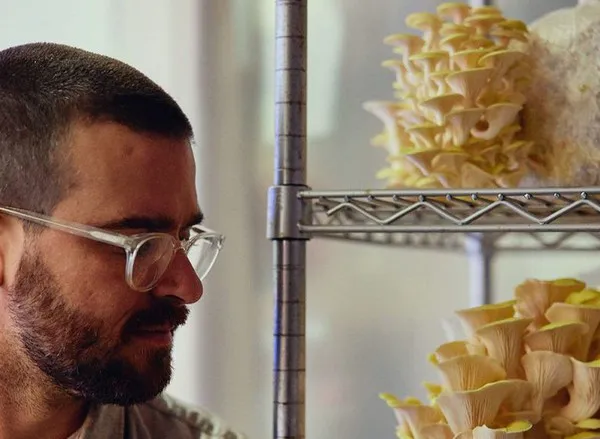The specialty mushroom category is quite different from its sister category, the white button mushroom. “Specialty mushroom trends have grown over the past few years but there are very few suppliers throughout the country,” says Aurora Porter, Vice President of Sales for Smallhold based in Brooklyn, New York. She notes that while the majority of the country’s button mushrooms are grown in Pennsylvania and those mushrooms ship well, the specialty variety operates with some more intricacies.
 Aurora Porter says specialty mushroom trends have grown over the past few years but there are very few suppliers throughout the country. Photo: Zeph Colombatto.
Aurora Porter says specialty mushroom trends have grown over the past few years but there are very few suppliers throughout the country. Photo: Zeph Colombatto.
“Specialty mushrooms are a little more delicate and their quality can degrade," says Porter. "I think that’s one reason why you don’t see a lot of American farmers growing and shipping specialty mushrooms far distances. They tend to be more regional which is an approach we have. We want to grow as close as possible to our end customers so that’s why we have this macro distributed farming approach.”
Currently, Smallhold has Macrofarms in Brooklyn, New York and Buda, Texas. Next month, it will open a location in Los Angeles, California. “We hope to have farms all over the country in the next few years that can serve our customers within a few hundred miles of where we’re growing,” says Porter.
Starting with Blue Oyster
In terms of variety, Porter says its Blue Oyster is its most popular--a mushroom that’s almost an entry point for consumers into the specialty mushroom world. It also grows Lion’s Mane, Trumpet and Yellow Oysters, along with the more familiar Maitake and Shiitake mushrooms.
 Co-founder Andrew Carter. Photo: Zeph Colombatto.
Co-founder Andrew Carter. Photo: Zeph Colombatto.
As far as demand for specialty mushrooms, Porter says it continues to outstrip supply which isn’t surprising given how consumer eating habits are evolving. She also adds that mushrooms were one of the fastest growing produce items during the pandemic. “There’s consumer demand for healthy, better for you options and also a willingness to try new things,” she says. “The mushroom space has seen very little innovation in decades. It’s a part of the produce aisle that’s been a little neglected.”
Smallhold also hopes to grow the consumer base of who specialty mushrooms appeal to. In hopes of educating consumers, Smallhold is doing things like featuring QR codes on its packaging that link to recipes and walk consumers through what to do with the product.
 For more information:
For more information:
Caroline Chau
Smallhold
caroline@jacktaylorpr.com
https://www.smallhold.com/
